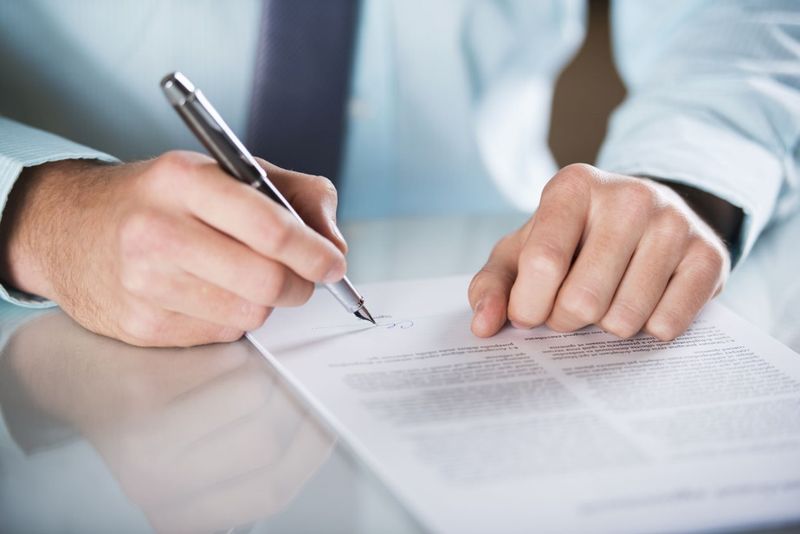I am studying in the third year of the State University of Economics and Technology.I specialize in contractual, economic and corporate law, in particular, I provide consultations and write articles.
Force majeure, or force majeure, is a term used to describe events or circumstances that occur beyond the control of the parties and that could not have been foreseen. In the legal context, force majeure is the basis for exemption from liability for non-fulfillment or improper fulfillment of obligations under the contract, if such circumstances make it impossible or seriously complicate the fulfillment of obligations.
The main aspects of force majeure:
- Force majeure: Force majeure cannot be controlled or prevented by the parties. These are circumstances beyond their control.
- Unpredictability: Events considered as force majeure must be unforeseeable at the time of conclusion of the contract. That is, they could not be foreseen and taken into account when signing the contract.
- Impact on performance: Force majeure has a significant impact on the ability of the parties to perform their obligations under the contract. This may include delays, defaults, or impossibility.
- Documentation: In order for events to be recognized as force majeure, the party claiming them must provide evidence confirming the occurrence of such circumstances.
Examples of force majeure circumstances:
- Natural disasters: Earthquakes, floods, hurricanes, volcanic eruptions.
- Socio-political events: Wars, terrorist acts, mass riots.
- Epidemics and Pandemics: Costs arising from disease outbreaks that affect the parties' ability to meet obligations.
Question
Does force majeure affect exemption from liability for breach of contract?
Answer
The party affected by force majeure circumstances may be released from responsibility for non-fulfilment or improper fulfillment of obligations for the duration of these circumstances. At the same time, this does not exempt a person from fulfilling the obligation imposed on him by the contract.
Question
Should force majeure be defined in the contract?
Answer
Many contracts contain special conditions regarding force majeure, which define exactly what is considered force majeure and how exactly these circumstances are confirmed. This may include the obligation to report force majeure circumstances and provide relevant documents.
Question
How can force majeure be confirmed?
Answer
The party claiming the occurrence of force majeure must provide documents confirming the occurrence of force majeure circumstances. These can be official statements, reports from the relevant authorities or other confirmations, for example, a TPP certificate.
The importance of chambers of commerce and industry in certifying force majeure circumstances:
Regional chambers of commerce and industry (CCI) in Ukraine play an important role in certifying force majeure circumstances, which confirm the impossibility of fulfilling contractual obligations due to unavoidable circumstances. This applies to situations when enterprises face unforeseen and unavoidable events that complicate or make impossible the fulfillment of contractual obligations. Certification of force majeure circumstances:
- Issuance of certificates: TPP issues certificates of force majeure, which confirm that the enterprise was really affected by circumstances of force majeure. This document can serve as evidence in case of disputes with counterparties or in court.
- Assessment of circumstances: TPP conducts an analysis and verification of the presence and impact of force majeure circumstances on the enterprise's ability to fulfill its obligations.
Types of applications based on which certificates are issued:
For this, economic entities and natural persons submit relevant applications to regional chambers of commerce and industry (CCI). Here is what the procedure looks like and what applications can be submitted:
- Application for certification of force majeure circumstances (contractual obligations)
Content of the application: Description of force majeure circumstances (natural disasters, socio-political events, etc.), information about the contract that cannot be performed due to these circumstances, and also attached documents confirming the occurrence of force majeure (official reports, acts of emergency situations ).
Purpose: It is used to confirm unforeseen circumstances that complicate or make impossible the fulfillment of obligations under the contract.
- Application for certification of force majeure circumstances (tax obligations)
Content of the application: Description of the circumstances that affected the ability to fulfill tax obligations and a list of tax obligations that cannot be fulfilled (submission of declarations, review of decisions of control bodies, return of overpaid sums).
Purpose: To extend the deadlines for submitting tax returns, applications for review of decisions of controlling bodies, postponement of tax obligations or tax debt.
- Application for certification of force majeure circumstances (tax debt write-off)
Content of the application: A detailed description of the force majeure circumstances that led to the formation of a bad tax debt. Documents confirming the circumstances that caused the tax debt.
Purpose: To write off a bad tax debt that arose due to force majeure.
- Application for certification of force majeure circumstances (legislative obligations)
Content of the statement: Description of force majeure circumstances that made it impossible to fulfill obligations under legislation or regulations. Indication of specific legislative or regulatory acts that were not implemented due to these circumstances.
Purpose: To confirm unforeseen circumstances preventing the fulfillment of obligations established by legislation or regulations.
The procedure for consideration of an application for certification of force majeure circumstances
The procedure for consideration of an application for the certification of force majeure circumstances involves several key stages, including the specified terms of consideration, preparation of the certificate and its issuance. Here's how it happens:
- Submitting an application to the regional Chamber of Commerce and Industry: A business entity or an individual submits an appropriate application for certification of force majeure circumstances to the regional Chamber of Commerce and Industry (CCI).
- Consideration of the application for business entities: The application is considered within seven working days from the moment of submission, if it concerns economic obligations. For individuals: The application is considered within twenty-one working days from the moment of submission, if it concerns personal obligations.
- Preparation of certificate Entry into the Register: After consideration and confirmation of force majeure circumstances, the certificate is entered into the Register. Preparation of the text of the certificate: The text of the certificate is prepared in accordance with the standards of the Chamber of Commerce and Industry.
Signing and certification: The certificate is signed by an authorized person and certified by the seal of the Chamber of Commerce and Industry.
- Issuance of the certificate: After signing and certification, the certificate is printed on the official form of the Chamber of Commerce and Industry and issued to the applicant.
Lawyer advice in obtaining a certificate from the Chamber of Commerce and Industry
The lawyer services in obtaining a certificate of force majeure from the Chamber of Commerce and Industry (CCI) can be extremely useful to ensure the correctness and efficiency of the procedure. Here's how a types of legal services can help with this process:
- Lawyer consultation and legal analysis of the situation:
Assessment of the situation: A lawyer will help determine whether your situation falls under the category of force majeure according to the legislation and standards of the Chamber of Commerce and Industry.
Advisory services: Providing advice on exactly what circumstances can be recognized as force majeure and how this will affect your obligations.
- Preparation of documents:
Filling out the application: The legal services will help you fill out the application for certification of force majeure circumstances (in particular, the form of the appendix to the Regulations), ensuring the correctness and relevance of the information.
Collection of supporting documents: Assistance in the collection and preparation of documents confirming force majeure circumstances (for example, official reports, acts of emergency situations).
- Verification of conformity of documents:
Document analysis: The lawyer checks whether all submitted documents meet the requirements of the TPP and the law to avoid rejection or delays.
Document correction: Making necessary corrections or additions to documents to meet requirements.
- Interaction with the Chamber of Commerce and Industry:
Communication: A lawyers online can communicate with the Chamber of Commerce and Industry on your behalf, including filing an application, clarifying details, and status inquiries.
Resolution of disputed issues: In the event of misunderstandings or requests from the Chamber of Commerce and Industry, a lawyer can help resolve them.
- Legal support:
Preparation for the examination: The lawyer help will prepare you for possible questions or checks that may arise during the examination of your application.
Receiving the certificate: Once the certificate is prepared, the lawyer services online will check its correctness and completeness before receiving it.
Obtaining a TPP certificate is an important stage for confirming the circumstances that make it impossible to fulfill obligations, and it can affect the decisions of counterparties, tax authorities and during the judicial procedure for resolving disputes. A lawyer specializing in corporate law and contractual relations can greatly facilitate the process of obtaining a force majeure certificate and ensure proper protection of rights and interests.




































